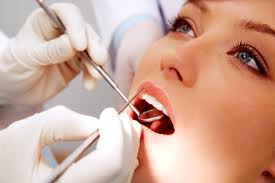
01 Mar Oral Cancer
Cancer of any kind is a devastating diagnosis to anyone. Oral cancer is particularly devastating as our mouths are a vital part of our daily lives. We express ourselves, and nourish ourselves through our mouth, and oral can be detrimental to any of th most basic tasks.
So what is oral cancer? It is described as any abnormal growth and spread of cells occurring in the mouth cavity including the:
There isn’t one single risk factor that is the determinant for oral cancer. In fact, there are several risk factors that are associated with the development of oral cancer.
Age is a risk factor associated with the development of oral cancer. Oral cancer can be developed at any age, however, the incidence of an oral cancer diagnosis increases for those over the age of 40. That being said, those over 60 years of age have the highest incidence of oral cancer.
Gender has also been shown to play a role in the development of oral cancers. At one point in time, the ratio of men to women diagnosed with oral cancers was 6 to 1. Now it is closer with the ratio of men to women 2 to 1, respectively.
Smoking greatly increases the risk of developing oral cancer. This includes smokeless tobacco, snuff, chewing tobacco, chewing betel quid, paan, areca nut and cigarettes. When coupled with alcohol use, the risk for developing oral cancer greatly increases. The duration of use and amount of use does play a role in the development of oral cancer from alcohol use.
HPV (Human Papillomavirus), through increased research, has shown a connection to the development of oral cancers.
Lifestyle also plays a role in the development of oral cancers. Those who have a lot more sun exposure are more at risk of development of oral cancers. A diet that is low in fruits and vegetables is also a risk factor to develop oral cancers.
A diagnosis of oral cancer doesn’t have to be a death sentence. However, there are many things that you can do to prevent the cancer to begin with. They include:
- Seeing a dental professional (traditional or holistic) for a regular check ups and cleanings.
- Quitting smoking and not using tobacco products. There are many warnings on packages, however, they are ignored. Even just reducing smoking can make a huge difference.
- Reduce alcohol consumption. The risk is higher the more that you consume.
- Reducing the risk of getting HPV is important as well. Using a condom while sexually active is very important for reducing the risk of contracting HPV.
- Using lip balm that have UV protection is a great way to reduce the harm of sun exposure on your lips.
- Eating the appropriate amount of vegetables and fruits is important.
- It is also important to brush and floss daily.
Another part of being an oral cancer survivor, is catching it at an early stage. As with other cancers, it is important to catch it early so that it doesn’t spread to other parts of the body. So how can you do this? As mentioned before, it is important to attend a regular dentist’s appointment. However, a dental and/or a healthcare professional can catch oral cancers in their early stages. There are some signs and symptoms to look for, and they include:
- Sores in the mouth that do not heal within two weeks
- Dark red or white patches in the mouth
- Lumps located on the lips, tongue or neck
- Bleeding in the mouth
- Sore throat and difficulty with swallowing
**taken from the Heath Canada Website**
It is extremely important to see a dental and/or healthcare professional if any of the above symptoms are experienced frequently.
Oral cancer doesn’t have to be a death sentence. It can be an opportunity for change and growth. However, having a healthy and happy lifestyle is an important piece to preventing this painful and life-changing disease.
For more information, please visit the Health Canada Website ( http://www.hc-sc.gc.ca/hl-vs/oral-bucco/disease-maladie/cancer-eng.php ).


